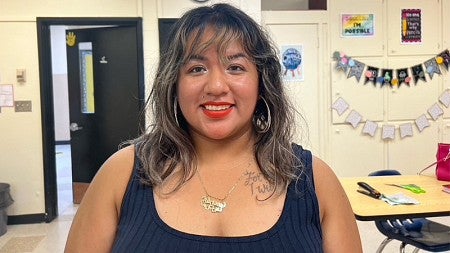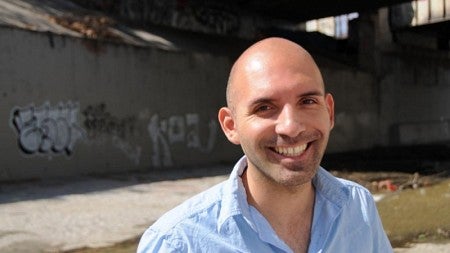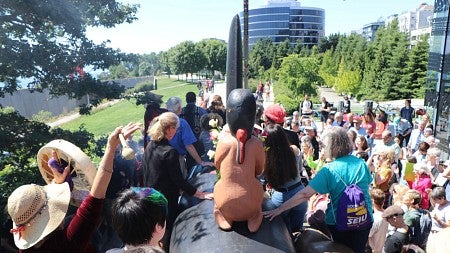
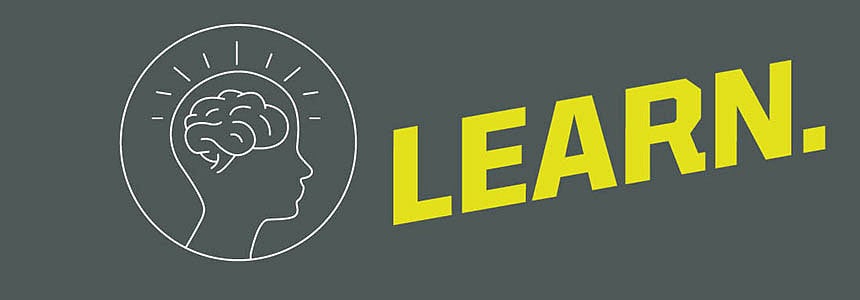

Combating Racism
January 2022
At the UO, as across the country, we have had to face a renewed reckoning around issues of race and inequality. We know the work of creating a more inclusive and antiracist community is a continuous journey. Each month, these pages will highlight some of the work being done and the resources available here on campus. We hope these efforts act not as a token, but as a turnkey to help open doors for those to come.

Derrick Bell photo by David Shankbone. A’Lelia Bundles photos by Anya Chibis.
Your First Duty is to Humanity
The 2022 Derrick Bell Lecture with A’Lelia Bundles
2022 Derrick Bell Lecture
Your First Duty Is to Humanity
Echoes of Derrick Bell in Madam C. J. Walker’s Activism and Entrepreneurship
Journalist and author A’Lelia Bundles
Wednesday February 9, 2022
5:30 pm, Knight Law Center (in-person)
RSVP required
The Derrick Bell Lecture is a collaboration between the University of Oregon School of Law and the Division of Equity and Inclusion. The Lecture is a part of the African American Workshop and Lecture Series sponsored by DEI and the Office of the UO President.
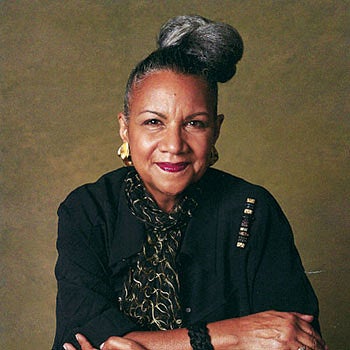
A’Lelia Bundles is author of On Her Own Ground: The Life and Times of Madam C. J. Walker, which chronicles the life of her great-great-grandmother, a self-made millionaire. Madam Walker used her enterprise to provide economic opportunity for Black women during a period marked by racial discrimination and sexism. The New York Times Notable Book served as the inspiration for Self Made, the fictional four-part Netflix series.
The daughter of formerly enslaved parents, Sarah Breedlove—who would become known as Madam C. J. Walker—was orphaned at seven, married at 14, and widowed at 20. She spent the better part of the next two decades laboring as a washerwoman for $1.50 a week. Then—with the discovery of a revolutionary hair care formula for black women—everything changed. Walker built her venture, the Madam C. J. Walker Manufacturing Company, in Indianapolis during the turn-of-the-twentieth century Jim Crow era.
“The story of Madame CJ Walker and her family, including A’Lelia Bundles, resonated deeply with me and is truly inspiring,” said Oregon Law Dean Marcilynn A. Burke. “I’m thrilled that she will be delivering the lecture and sharing Madame Walker’s journey and the impact that Black lawyers and Black-owned businesses can have in the community.”
In her Derrick Bell lecture, Bundles will link history to current events and discuss how Walker’s political activism and philanthropy informed her mindset of economic independence. She will examine the relationship of Walker’s advocacy of generational wealth for her sales agents to the systemic and structural racism that Derrick Bell explored in his landmark book Faces at the Bottom of the Well.
“A’Leila Bundles reminds us that our stories are our power,” said Yvette Alex-Assensoh, Vice President of Equity and Inclusion. “We are delighted to welcome this illustrious and powerful storyteller to serve as the Derrick Bell Lecturer for 2022. Her presence will provide an opportunity to learn, grow and, perhaps, to tell our own stories with more boldness and grace.”
A former network television news executive and producer at ABC News and NBC News, Bundles is a vice-chair emerita of Columbia University’s Board of Trustees and chair emerita of the board of the National Archives Foundation. She is on the advisory boards of the March on Washington Film Festival, the Schlesinger Library on the History of Women in America at Harvard’s Radcliffe Institute, and founder of the Madam Walker Family Archives. She is at work on her fifth book, The Joy Goddess of Harlem: A’Lelia Walker and the Harlem Renaissance.
Derrick Bell served as the first African American dean of the UO School of Law from 1980 to 1985. He is considered one of the most influential voices in the foundation of Critical Race Theory, a framework that examines society and culture as they connect to race, law, and power.
News
Resources
Visit these resources—a small sampling of the many on campus—for ways to listen, learn, and act in the fight for social justice


